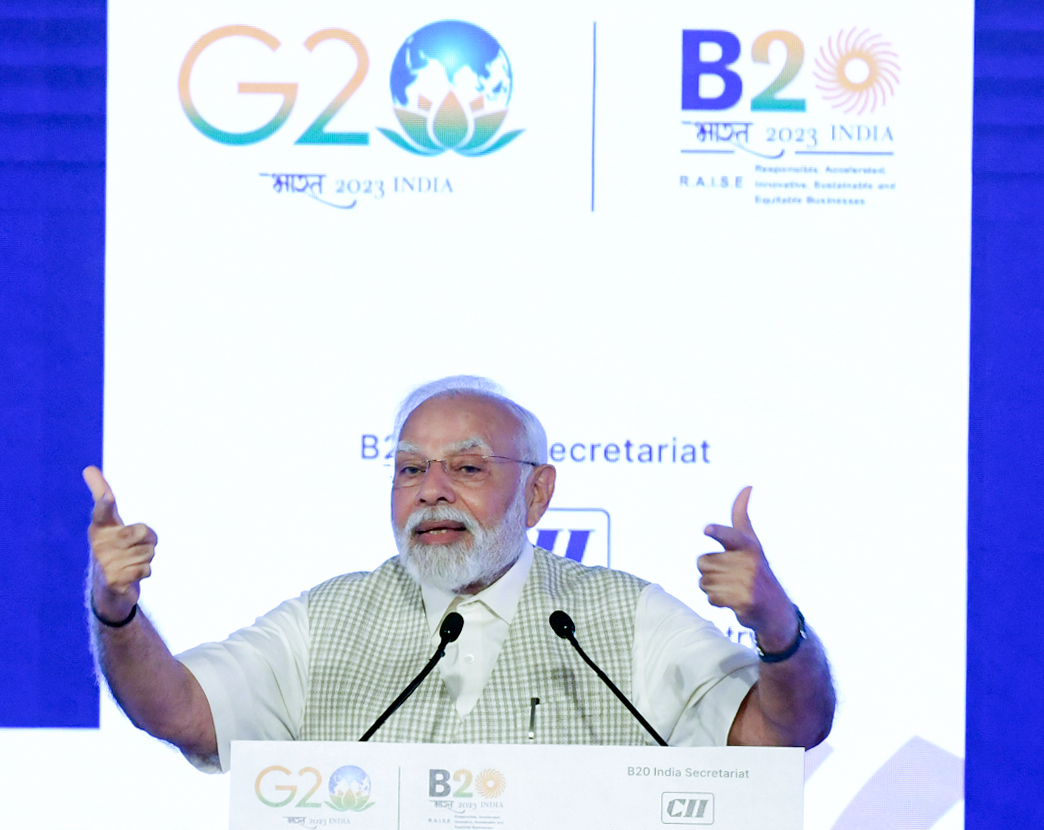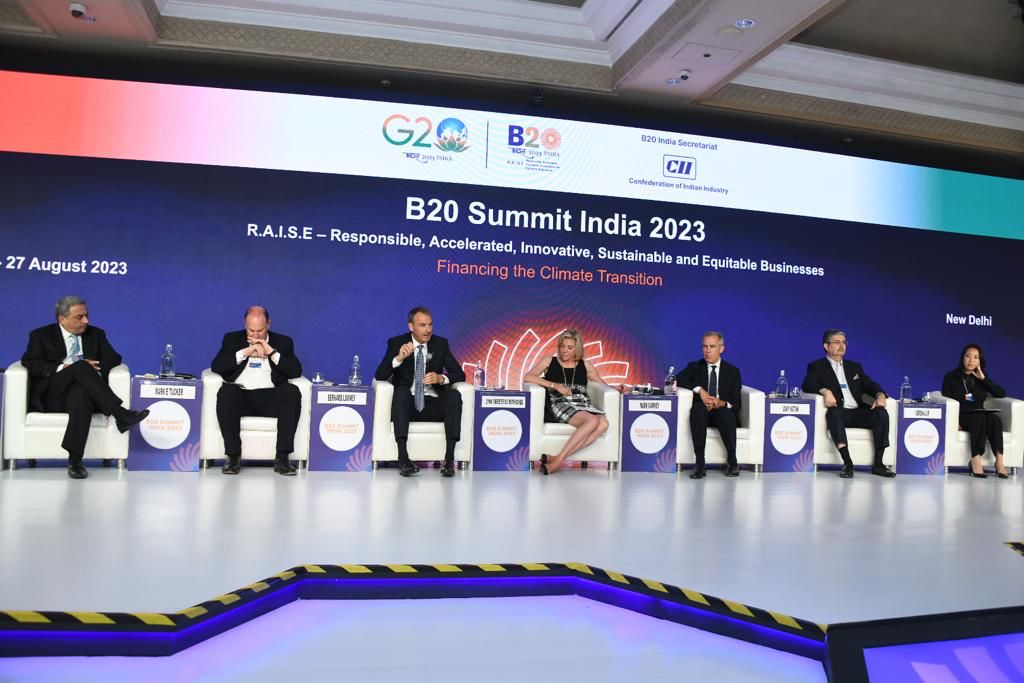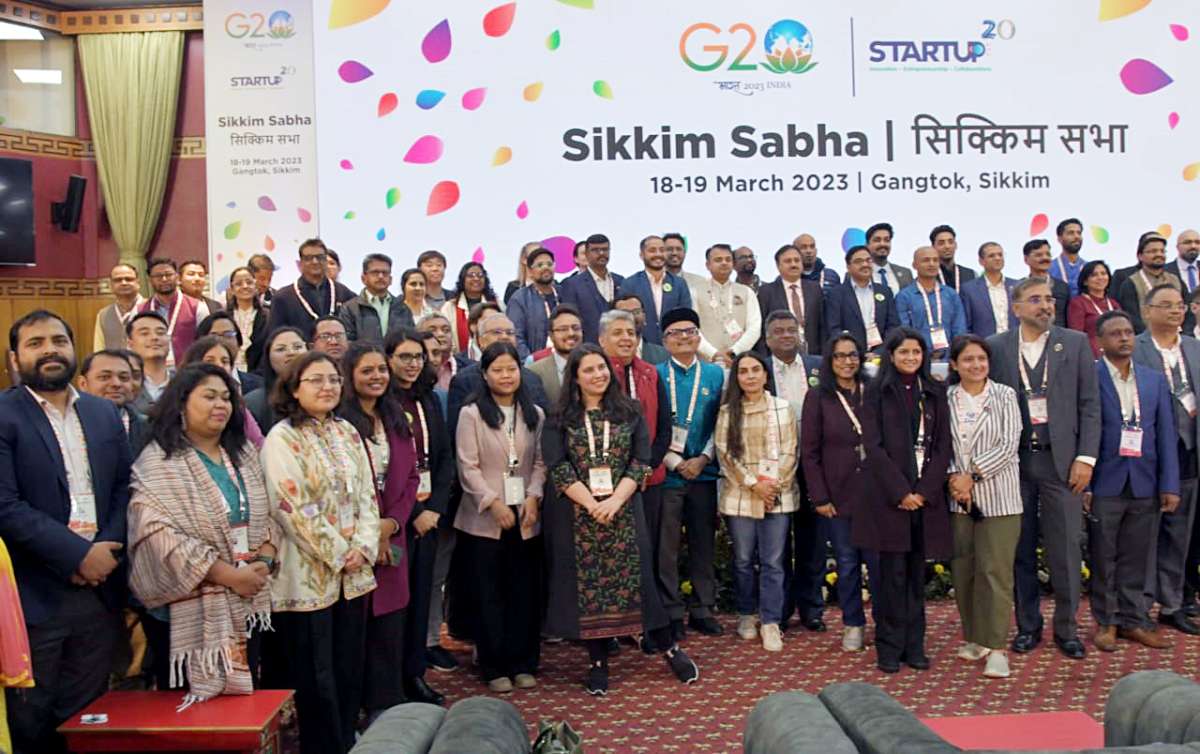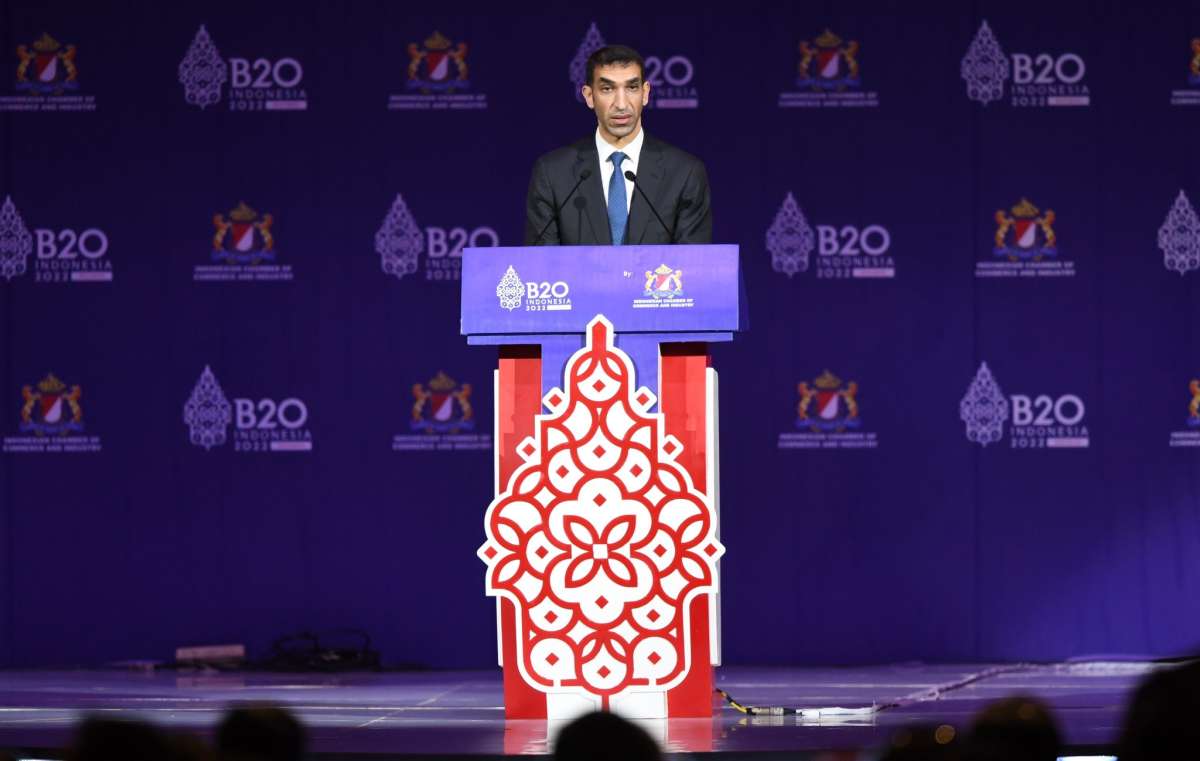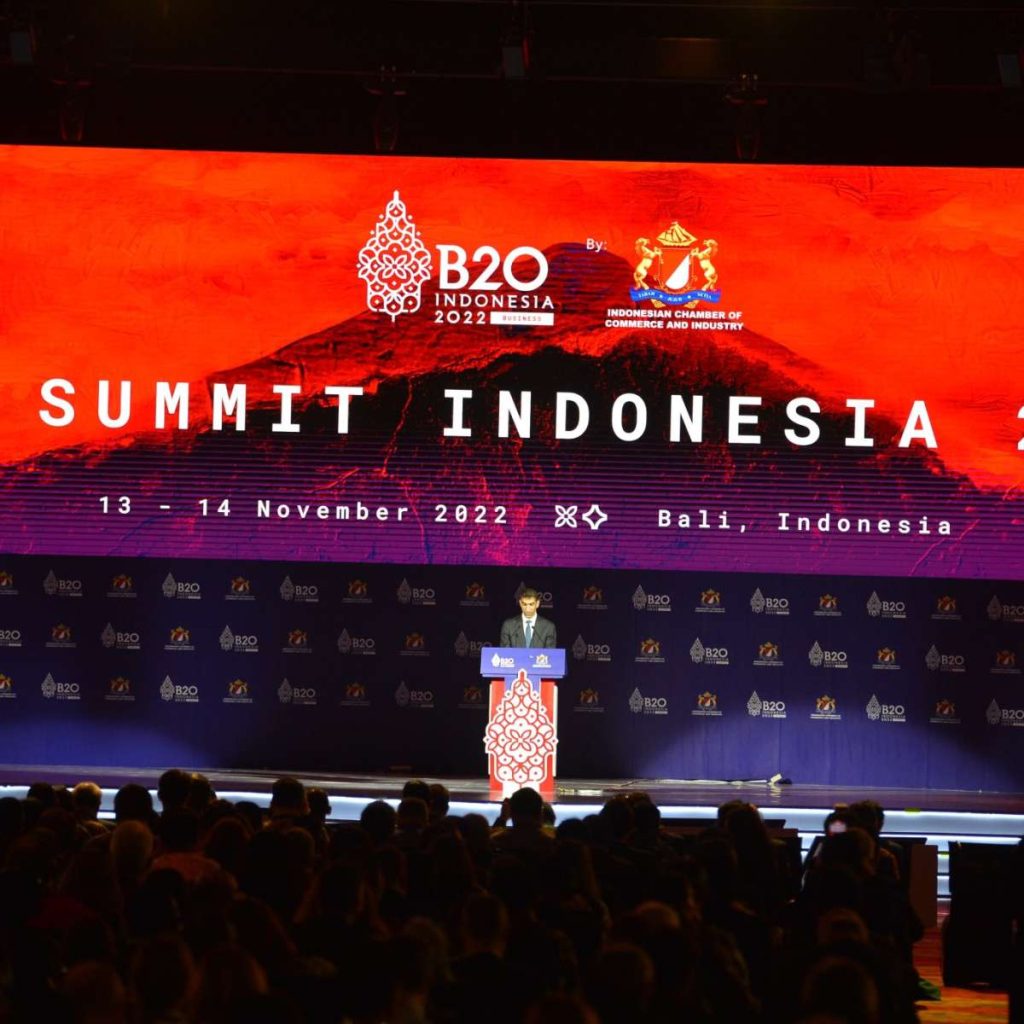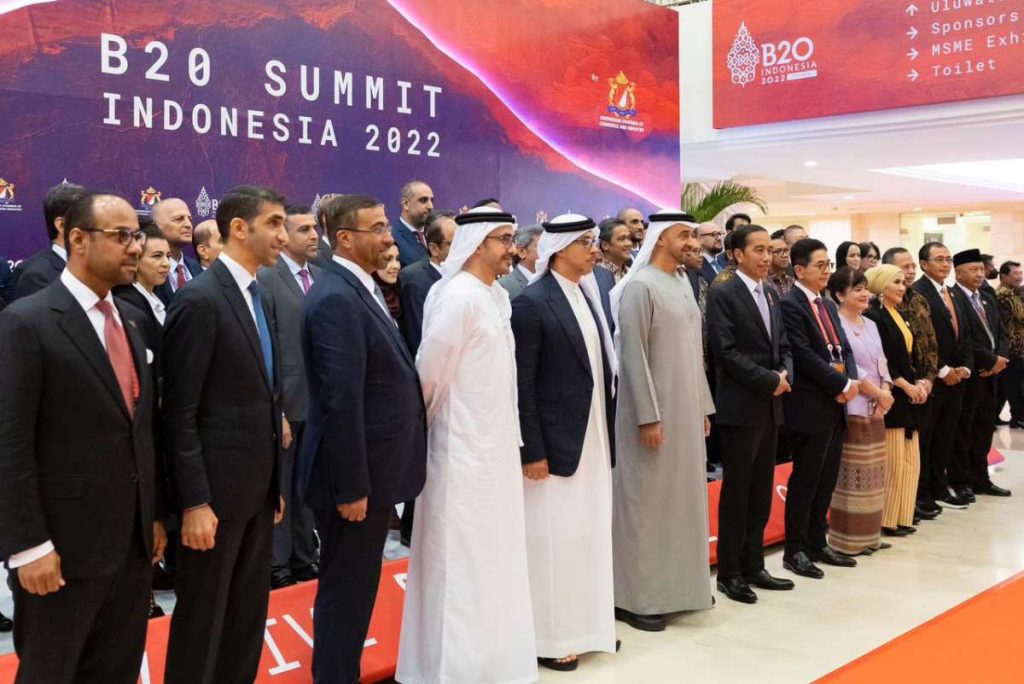The Business 20 (B20) is empowering global business dialogues. It serves as a potent platform within the G20 for global business interaction. With its inclusive approach, it unites corporations, associations, and leaders to address economic and trade governance on a global scale. The B20 Chair, appointed annually by the G20 Presidency, plays a pivotal role in spearheading actionable policy recommendations that align with the rotating priorities of the G20. India’s engagement in the B20 process is particularly robust, as evidenced by the active participation of key figures like Finance Minister Nirmala Sitharaman and Commerce Minister Piyush Goyal. The B20 India’s guiding principles, encapsulated in “R.A.I.S.E.”—Responsible, Accelerated, Innovative, Sustainable, and Equitable Businesses—represent a comprehensive approach to shaping the future of global business. As the B20 aligns its objectives with the broader goals of the G20, this collaborative effort has the potential to drive economic resilience, sustainability, and inclusive prosperity. Moreover, Prime Minister Narendra Modi’s vision, articulated during the B-20 summit, underscores the importance of ethical AI utilization, sustainability, and the need for balanced markets. His call for collaborative efforts to address pressing global challenges reflects India’s commitment to fostering partnerships that benefit the planet and promote universal progress. Together, these elements exemplify the B20’s role in advancing global economic and trade governance. … A special comment by Dr Maheep as India gears up to host G20 on September 9 and 10 in New Delhi
The Business 20 (B20) serves as the recognised dialogue platform within the G20 for interactions with the global business community. Originating in 2010, the B20 is one of the primary Engagement Groups within the G20 framework, involving the active participation of corporations and business associations. The B20 coordinates the mobilisation of leaders from around the world to express their perspectives on matters of worldwide economic and trade governance. It unifies the collective voice of the entire G20 business cohort.
The G20 Presidency annually appoints a B20 Chair, who is usually a distinguished business leader from the host country of the G20 summit that year. The B20 Chair receives support from a B20 Sherpa and the B20 secretariat. The core objective of the B20 revolves around formulating actionable policy recommendations aligned with the priorities set by each rotating presidency and aimed at stimulating economic advancement and growth.
The B20’s endeavours are carried out through Task Forces (TFs) and Action Councils (ACs), entrusted with the responsibility of crafting policy proposals grounded in consensus. These policies and proposals are presented to the G20 as well as other organisations and institutions of global eminence. The B20 officially submits its final recommendations to the G20 Presidency during the B20 Summit.
The overarching theme for B20 India was captured by the acronym R.A.I.S.E., which stands for Responsible, Accelerated, Innovative, Sustainable, and Equitable Businesses. Each of these sub-themes is detailed below. Responsible business practices encompass ethical, transparent, law-abiding, and accountable approaches that promote economic, environmental, and social progress while ensuring profitability. Accelerating business practices entail a collection of methods enabling private enterprises to consistently gain economic advantages and achieve remarkable growth in an optimal manner. Innovative business practices, embraced by B20 nations, involve generating novel processes, concepts, services, and products that can profoundly transform the business landscape. Sustainable business practices lie at the core of B20’s responsibility to advocate for economically feasible, socially conscientious, and eco-friendly businesses.
Integrating sustainability into fundamental business operations is crucial for fostering value creation at reduced costs through innovative business approaches. Equitable business practices are strongly emphasized within the B20 Agenda to cultivate inclusive growth. This is guided by two fundamental principles: first, the principle of ‘opportunities for all,’ ensuring that minority groups and the underserved have equal workforce participation opportunities regardless of factors such as caste, colour, race, gender, sex, or ethnicity. Second, the principle of ‘inclusiveness’ guarantees the equitable distribution of economic benefits from businesses among all segments of society.
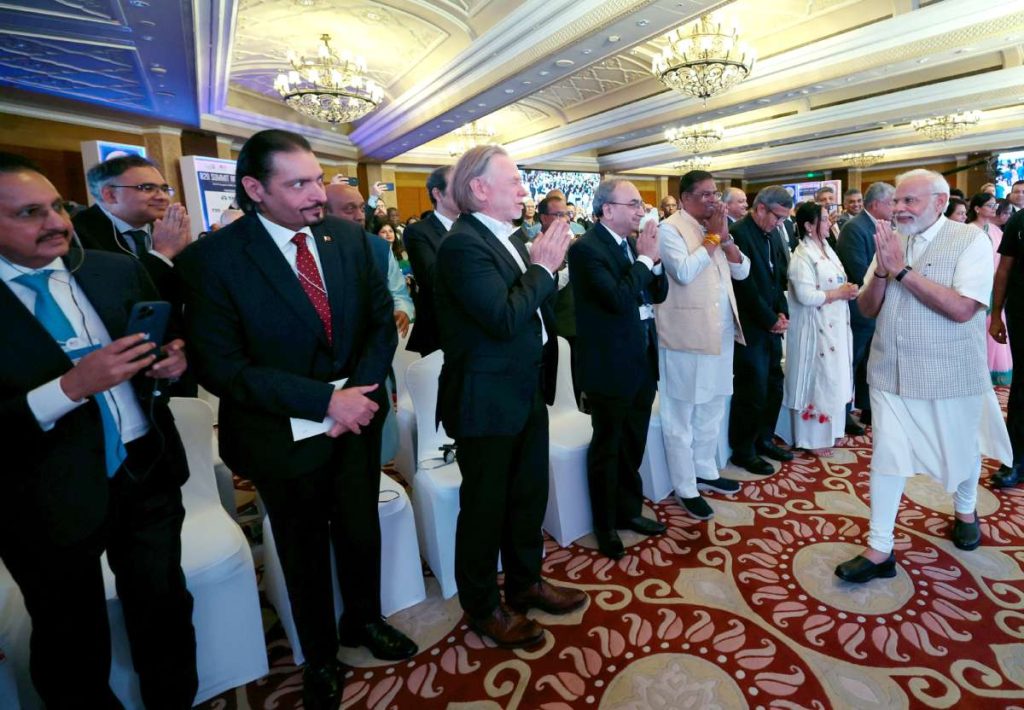
B20 India worked through via Task Forces and Action Councils to refine the B20 strategic vision and convert it into actionable policies concerning vital subjects on the worldwide economic schedule. The central areas of focus will be examined during B20 India across seven Task Forces encompassing: Fostering Inclusive Global Value Chains for Robust Global Trade and Investment, Shaping the Future of Work, Skill Development, and Mobility, Embracing Digital Transformation, Facilitating Financing for Global Economic Revitalisation, Promoting Financial Inclusion to Drive Economic Empowerment, Addressing Energy, Climate Change, and Resource Efficiency, and Nurturing Technology, Innovation, and Research & Development. B20 India has two Action Councils on ESG in Business and African Economic Integration: An Agenda for Global Business respectively.
On Friday, August 25, Nirmala Sitharaman, the Finance Minister of India, participated in the three-day B20 Summit held in Delhi. The summit also saw the presence of S Jaishankar, the External Affairs Minister, and Dharmendra Pradhan, the education minister. In her speech, Sitharaman provided her perspective on private investment, the global standing of the Indian economy, and the significance of managing inflation through prudent investment strategies.
During his B20 speech, Indian Minister of Commerce Piyush Goyal lauded medium and small scale enterprises (MSMEs) as a genuine economic asset, emphasizing their substantial contribution to economic activities. The B20 summit is being orchestrated by CII, which serves as the Secretariat for B20 India. Chandrajit Banerjee, who heads the B20 India Secretariat and serves as the Director General of Confederation of Indian Industries, informed that over 1,500 delegates from 55 different countries attended the summit.
Brazil’s Minister of Trade, Marcio Elias Rosa, emphasized that sustainability held the key to the future for both current and upcoming generations. He highlighted the pivotal role of energy in achieving sustainability objectives. Under the next G20 presidency, there will be a strong emphasis on promoting the shift towards clean energy, safeguarding natural resources, and nurturing sustainable economic growth.
Helene Budliger Artieda, the State Secretary for Economic Affairs of Switzerland, was confident that Switzerland has the potential to partner with India in order to establish itself as a leading global hub for both manufacturing and services. She emphasized that Swiss companies aim to enhance individuals’ capabilities by providing high-quality employment opportunities, underscoring this as Switzerland’s core offering.
Oman’s Minister of Trade, Qais bin Mohammed al Yousef, noted that India has the potential to achieve this aim by engaging in Free Trade Agreements (FTAs), both on a bilateral basis and potentially in the near future, even through the Gulf Cooperation Council (GCC).
U.S. Trade Representative Katherine Tai remarked that the collaboration between India and the United States involves the synchronization of political intentions. The purpose of a dispute resolution mechanism is to guide the involved parties towards a place where they are committed to each other and can effectively address the matters at hand.
The EU is determined to collaborate as a unified market, aiming to enhance connections with dependable and robust supply chains for the purpose of achieving expansion, noted Valdis Dombrovskis, the European Commissioner for Trade.
Mary Ng, the Canadian Minister of Trade, observed that Canada, as an exceptionally multicultural nation, embraces immigrants and the skills they bring from various parts of the globe to enrich the labour force, adding that the presence of a vibrant Indian Diaspora in Canada has proved to be a tremendous source of strength for the country.
Wang Shouwen, the Trade Minister of China noted that the trading connection between China and India has been rapidly expanding. The bilateral trade volume between the two nations rose to $130 billion last year. The scope for further trade growth is substantial, the prospect of which held advantages for the populations of both countries. Shouwen also observed that India would always be welcome to join the Regional Comprehensive Economic Partnership (RCEP).
Anshula Kant, the Managing Director and Chief Financial Officer of the World Bank, nations should be financially resilient in confronting natural disasters and other crises, highlighting a special toolkit consisting of three powerful instruments which the World Bank put together for the purpose: a catastrophe insurance, debt pause clauses, and rapid response options.
Earlier, the first among the four B20 conferences within the G20 dialogue forum, designed for the global business community, concluded in Imphal (Manipur) on February 19. With participation from 23 countries, the three-day Imphal conference brought together more than 100 delegates. Discussions revolved around the potential for collaborative business ventures across sectors such as ICT, tourism, healthcare, and handlooms. The conference saw contributions from representatives of both G20 member nations and other countries in the plenary session. The event was graced by delegates hailing from a diverse set of countries, including Australia, Argentina, Bangladesh, Bhutan, Chad, Canada, China, France, Greece, Ghana, Iceland, Japan, Nepal, Russia, Seychelles, Singapore, South Africa, Switzerland, Tunisia, Togo, Uganda, and the United States.
All four B-20 sessions were held in north east India. The purpose of scheduling them in the Northeast was to showcase the unexplored possibilities and prospects present within the Northeast States. The second of the four B20 India events held in the Northeast India took place in Aizawl from March 1st to 3rd, 2023. During this event, the focus was directed towards the potential collaborative business prospects that the state could provide to attendees, specifically in domains like urban planning, infrastructure, bamboo production, start-ups, skill enhancement, nursing, and paramedical services. This three-day gathering drew participation from approximately 500 individuals, including ministers, high-ranking government officials, diplomats, and representatives from the business community.
The third B20 Conference held in Gangtok, Sikkim from March 15 to 17 showcased the prospects of organic farming in Sikkim to a global audience. Additionally, the event drew attention to forging Multilateral Business Partnerships in the fields of Tourism, Hospitality, and Pharmaceuticals. The Department for Promotion of Industry and Internal Trade (DPIIT) organized all the four B20 Conferences in the North Eastern region, to highlight latent potential and possibilities that lie within this region.
Start-up 20, a new division within B-20 that focuses solely on start-ups, was established during India’s G20 Presidency. Its primary goal is to serve as a platform for discussions among stakeholders in the global start-up ecosystem. This platform aims to advocate for the interests of the global start-up community and bring attention to the broader economic challenges faced by entrepreneurs when engaging with G20 leaders. The Start-Up 20 engagement group has a total of 60 meetings on its schedule, with 5 of those being conducted in person. The upcoming event is yet to be specified.
The last of the four B20 India events in the north-eastern region was took place from April 4th to 6th, 2023, in Kohima, the capital of Nagaland. During the Kohima session, the focus was on uncovering prospects for collaborative business endeavours across various sectors such as Agriculture and Food Processing, Tourism, and IT. In addition to engaging discussions and comprehensive sessions, the event also facilitated meetings between businesses and government representatives (B2B & B2G). The state government took the opportunity to present significant advancements and ongoing initiatives in these industries, underlining the attractive investment possibilities in these fields.
Indian Prime Minister Narendra Modi in his address at the B-20 summit on August 27 made a strong pitch for a global framework to ensure the ethical utilization of Artificial Intelligence (AI), highlighting apprehensions about the bias present in contemporary technologies like AI and their ramifications on society.
Prime Minister Modi observed that India is in the process of establishing a worldwide framework for Green Credit. He called upon industry leaders to integrate their lives and businesses with a strong emphasis on actions that benefit the planet, underscoring the critical nature of concerns like climate change, the energy crisis, imbalances in the food supply chain, and water security, and emphasizing that these issues significantly impact businesses and tackling them requires collaborative efforts.
Modi also highlighted the importance of enhancing the purchasing power of larger segments of the population, cautioning against a self-centered approach that could lead to collective harm. Drawing parallels, he pointed out the challenge of uneven availability and universal necessity for crucial materials and rare earth metals. He cautioned that if those possessing these resources don’t perceive them a global responsibility, it could lead to new form of colonialism.
Modi highlighted India’s appeal as a partner for the global business community, showcasing the nation’s youthful talent pool and its digital transformation. He asserted that a deeper friendship with India would lead to mutual prosperity. Acknowledging the success of businesses transcending geographical limits, he called for a shift beyond profit margins through a greater focus on sustainability and supply chain resilience.
The Indian Prime Minister also stressed the necessity of a balanced market where the interests of producers and consumers, as well as nations, are harmonized to sustain profitability. He argued against viewing other nations solely as markets, stating that such an approach would ultimately hurt both producers and consumers, advocating for inclusive partnerships for the cause of universal progress.
The Business 20 (B20) has emerged as a vital platform within the G20 that has been fostering global business dialogue since its inception in 2010. B20 facilitates a collective voice for the G20 business community, shaping actionable policy recommendations aligned with the G20’s rotating presidency priorities. The recent B20 India focused on R.A.I.S.E., promoting Responsible, Accelerated, Innovative, Sustainable, and Equitable Businesses. India’s active role in B20 discussions highlights its commitment to global economic development. The international perspectives expressed at B20, from sustainability to economic partnerships, reflect the collaborative spirit necessary for global progress. Furthermore, the regional B20 conferences in India’s northeast showcased untapped potential and opportunities, amplifying the nation’s role on the global stage.
Prime Minister Narendra Modi’s vision for B20 emphasizes ethical AI, sustainability, and inclusive partnerships, underscoring the need for collective responsibility in addressing global challenges. India’s appeal as a global partner for business and its commitment to mutual prosperity exemplify the collaborative spirit of B20.
(Dr. Maheep is a Leading Analyst of India’s Foreign Policy. He has an avid interest in the Political Economy of India and regularly contributes on related important issues.)
